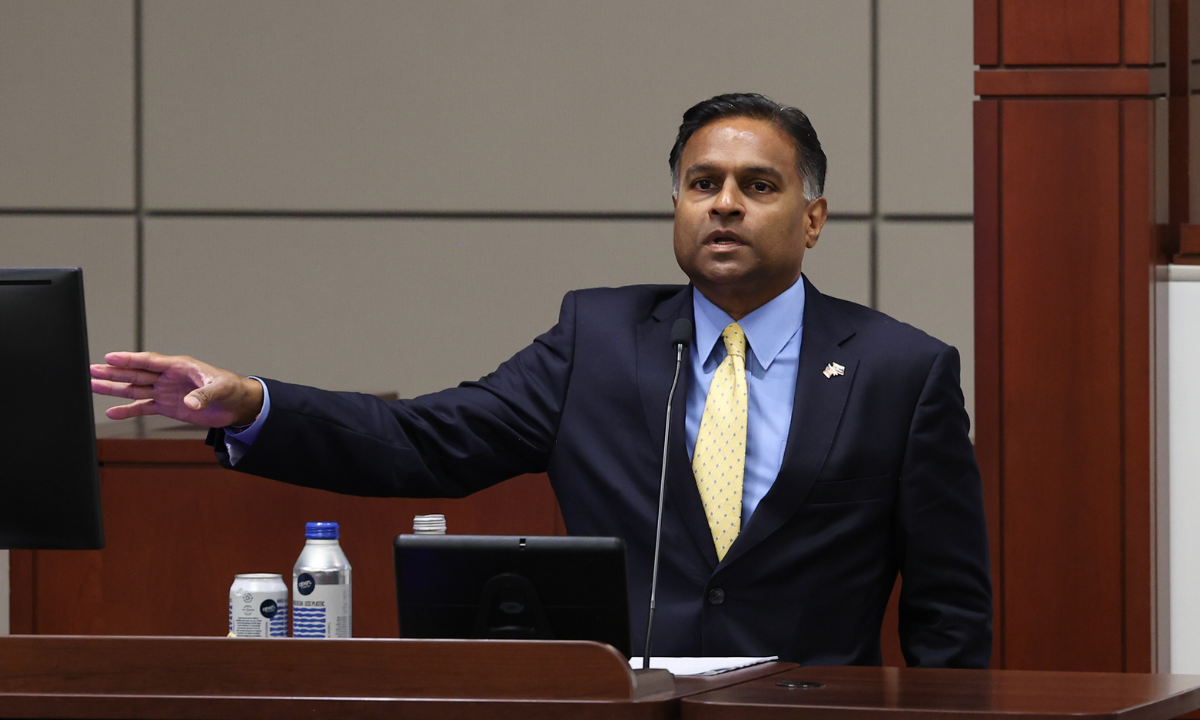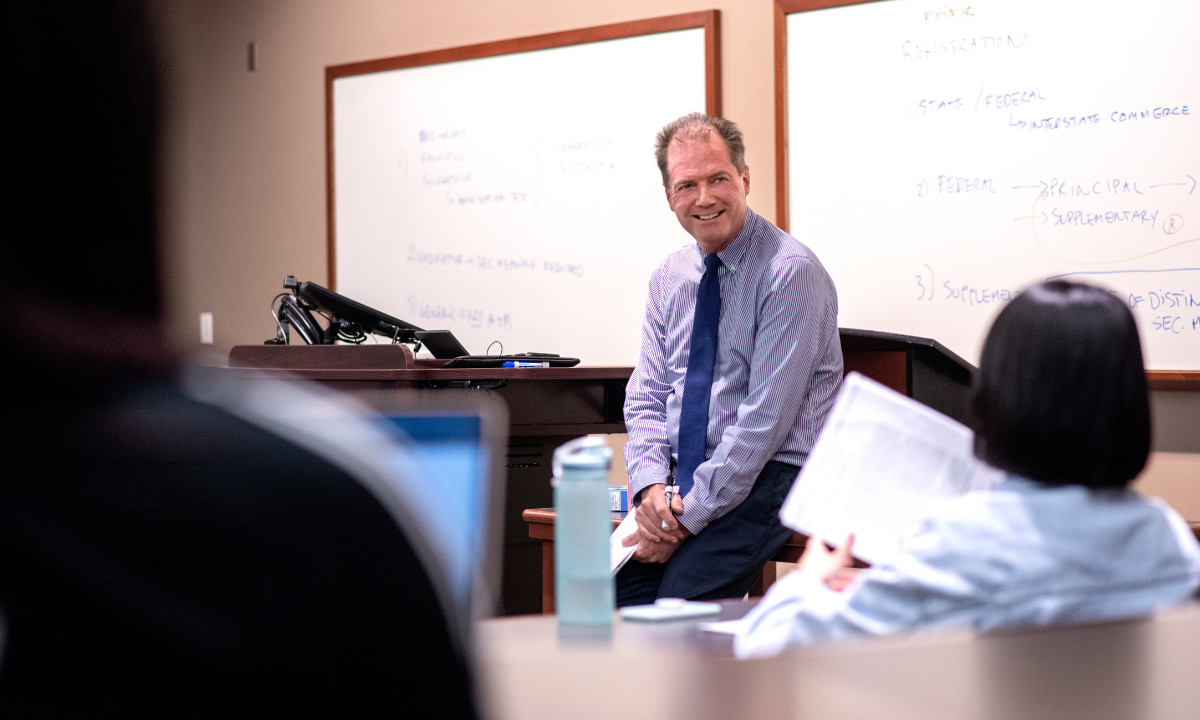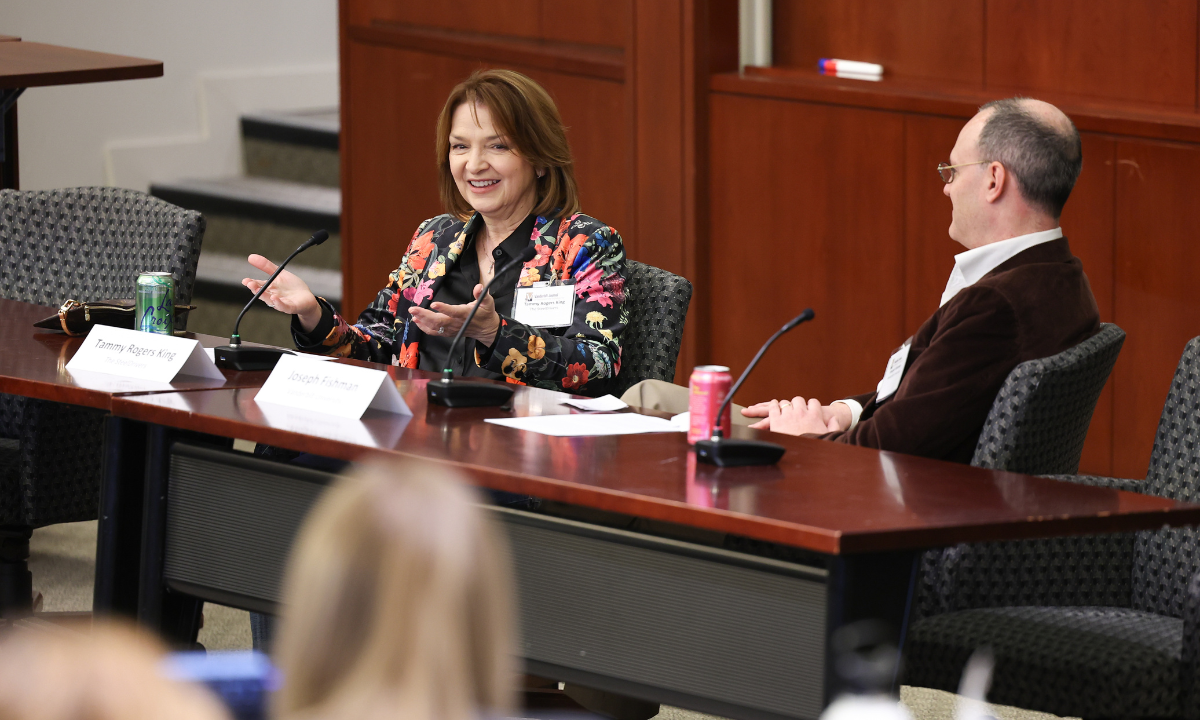by Angela Karas ’25
On April 4th, 2024, Vanderbilt Law School hosted its inaugural Music Law Summit, welcoming an array of scholars and industry professionals to discuss the impact of generative AI on the music industry. The all-day event featured several panels and keynote speakers, with topics ranging from the NO FAKES Act to how existing music might interplay with generative AI to create wholly new compositions. None of this would have been possible without the dedication of Vanderbilt Law professors: Professor Fishman, the Robert S. and Theresa L. Reder Faculty Fellow, who teaches a variety of intellectual property courses, including Music Law; Professor Gervais, the Milton R. Underwood Chair in Law and faculty advisor of the Vanderbilt Journal of Entertainment & Technology Law; and Professor Kessler, who offers several entertainment industry and intellectual property courses.
The first panel of the day concerned Name, Image, and Likeness issues and featured esteemed panelists, from the National Executive Director and Chief Negotiator, SAG-AFTRA to the Chief Legal Officer of the Recording Industry Association of America. Panelists highlighted myriad considerations that generative AI poses for the music industry and how their respective industries ought to respond. Some of these considerations included how the First Amendment alters the legal calculus and the manner in which existing legal regimes like trademark, unfair competition, and consumer protection laws could potentially map onto generative AI.
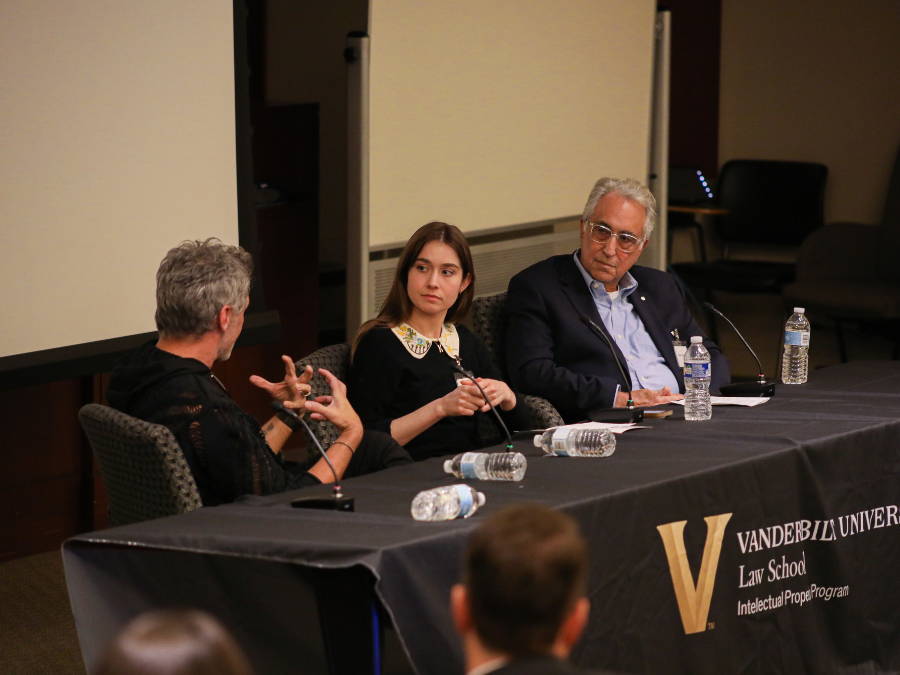
Panelists also offered their takes on the efficacy of proposed solutions, including existing bills. Tennessee’s recently enacted ELVIS Act proved a major discussion topic, with panelists discussing the entertainment industry’s response to this legislation and optimal the level of input and consent in any creation of “replicas.”
After this first panel, attendees heard from keynote speaker Shira Perlmutter, the Register of Copyrights at the U.S. Copyright Office. She offered valuable insight into how the explosion of generative AI over the past year has presented new legal questions for the Copyright Office. For instance, she discussed how the Mechanical Licensing Collective (MLC) has sought advice from the Copyright Office regarding best practices relative to generative AI compositions. She also underscored the need for an international framework in light of the interconnected nature of global society, citing the EU AI Act as an example of such a framework for policymaker consideration. She additionally described a forthcoming report the Copyright Office is preparing regarding generative AI.
Following this fascinating first keynote, the next group of panelists then treated attendees to demonstrations of various AI tools that fans and creators alike can leverage to “create” new music. This included generated original song snippets sung in the style of various popular music artists. Other such generative AI tools target musicians themselves, granting them novel methods of interacting with their fanbase. While the capabilities of generative AI are undoubtedly a source of existential anxiety for some, this was also a cause to marvel at the capabilities of generative AI that possess the potential to completely revolutionize such aspects of the music industry as fan engagement.
The next panel focused on individuals’ use of existing music for machine learning, featuring revered professors, law partners, and industry executives. Generative AI requires inputs of existing music to generate its outputs, and the debate surrounding accompanying copyright ramifications—particularly the role of fair use—sparked lively debate among the panelists. Panelists discussed what constitutes a copy and what qualifies as a “transformative use,” and, specifically, what the creators of the generative AI at play owe (if anything) to the musicians whose works function as input for machine learning.
The Summit then turned its focus to the role of student scholarship, where the Director of the Recording Academy spoke alongside current Cardozo law student and recipient of the ELI Writing Award, Olivia Fortunato. She spoke about her paper, which examines postmortem rights for artists and the current issues the patchwork of varying state legislation creates, proposing, inter alia, a federal law to uniformize legislation.
Then, the second keynote speaker, Ed Newton-Rex, CEO of Fairly Trained, gave a fascinating address. Fairly Trained is a generative AI company that only trains its AI on data from whom it has received authorization from creators. Fairly Trained also offers a certification for AI providers who adhere to certain criteria, including ensuring a certified company follows due diligence in checking the status of the rights’ holder of the data (if applicable) and verifying it in fact has authorization. The certification also requires that the content is licensed, in the public domain, subject to an open-source license, or already within the ownership of the company utilizing the generative AI. Newton-Rex discussed the ethical problems generative AI poses in terms of allowing creators to capitalize on copyrighted works to train AI models and how that led him to leave his previous job to start Fairly Trained.
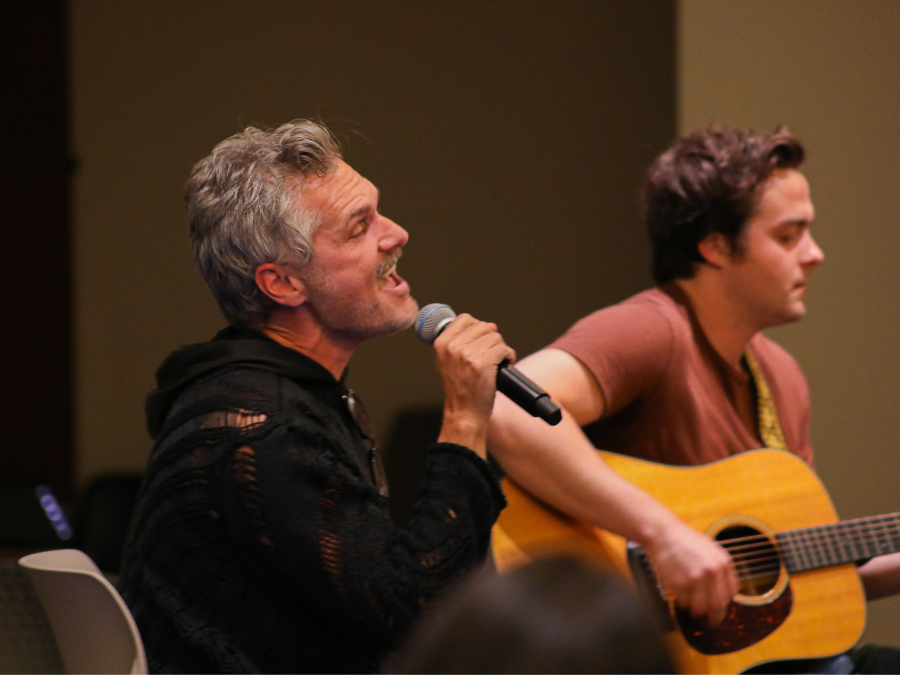 The final panel of the day featured songwriters describing the impact of generative AI on their craft. They suggested that generative AI will have a massive impact across all genres of music, rather than impacting any single genre in particular. Singer-songwriter Shane Stevens closed out the Summit with a performance of two of the songs he had composed, including smash hit “Fancy Like.” Following the conclusion of the Summit, guests enjoyed a reception with refreshments.
The final panel of the day featured songwriters describing the impact of generative AI on their craft. They suggested that generative AI will have a massive impact across all genres of music, rather than impacting any single genre in particular. Singer-songwriter Shane Stevens closed out the Summit with a performance of two of the songs he had composed, including smash hit “Fancy Like.” Following the conclusion of the Summit, guests enjoyed a reception with refreshments.
In sum, the inaugural Vanderbilt Law Music Summit featured incredible programming, cutting-edge discussion, and lively debate on the impact of generative AI on the music industry. Whatever the trajectory of generative AI’s impact on the music industry, Vanderbilt Law School has proven itself a pioneer in promoting the crucial discussions that legally informed scholars will continue to proliferate in the coming years.
